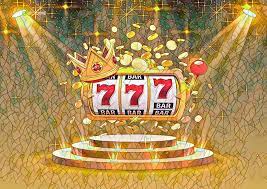Casinos have long been centers of excitement, offering a blend of entertainment, chance, and skill. From the glamorous settings of Las Vegas to the world of online gambling, buy138 captivate millions of players every year. While they’re known for their opulence and the potential for big wins, they also carry risks that must be understood. In this article, we explore the history, mechanics, and impact of casinos on society.
The History of Casinos: A Long Tradition of Gambling
Gambling is an ancient activity, with evidence of games of chance dating back to ancient civilizations like China, Egypt, and Rome. However, the modern casino as we know it emerged in the 17th century in Italy. The word “casino” itself comes from the Italian word casa, meaning “house.” Initially, these establishments were simply places for social gatherings, where people would play games of chance for fun.
The first true casino, however, was the Venetian Casino in Venice, founded in 1638. This was a place where the nobility and wealthy merchants could gamble in a formal setting. The concept of the casino began to evolve throughout Europe and reached its peak in Monaco in the 19th century, with the opening of the famous Casino de Monte-Carlo in 1863. This casino became synonymous with wealth, glamour, and high society.
In the United States, casinos became synonymous with Las Vegas in the mid-20th century. Las Vegas, initially known for its resorts and entertainment venues, became the world’s most famous casino city. Nevada legalized gambling in 1931, allowing the construction of the iconic casinos along the Las Vegas Strip. The glitzy neon lights and the allure of big payouts drew people from all walks of life to try their luck.
How Casinos Work: Games of Chance and Skill
Casinos offer a wide range of games, but they all share one common element: the house edge. This is the built-in advantage that ensures the casino ultimately makes a profit over time. Some games, such as slots, are based purely on luck, while others, like poker or blackjack, involve an element of skill and strategy.
Slot Machines: These are the most common form of casino games, found in nearly every casino worldwide. Slots use random number generators (RNGs) to determine outcomes, making them games of pure chance. They are popular because of their simplicity and the possibility of large jackpots, which are often life-changing.
Card Games: Games like blackjack, poker, and baccarat require a blend of luck and strategy. Players can increase their chances of winning by learning the rules and adopting various strategies. For example, in blackjack, understanding when to hit or stand can drastically improve a player’s odds. Poker, in particular, has gained worldwide popularity thanks to televised tournaments like the World Series of Poker (WSOP).
Roulette: In roulette, players bet on where a ball will land on a spinning wheel. The wheel features 37 (European) or 38 (American) slots, and the game is primarily based on luck. However, various betting strategies can alter a player’s chances of winning.
Craps: A game of dice, craps is often one of the loudest and most energetic games in a casino. Players bet on the outcome of the dice rolls, and while there is an element of luck, strategy can also play a role in minimizing losses and maximizing wins.
The Rise of Online Casinos
With the advent of the internet, the traditional casino experience has gone digital. Online casinos have revolutionized the gambling world, offering players the ability to enjoy their favorite games from the comfort of their homes. Online platforms often provide a wider variety of games, and new innovations, such as live dealer games, offer a more interactive experience.
Mobile technology has furthered this trend, enabling players to gamble from smartphones and tablets. However, while online gambling has made casinos more accessible, it has also raised concerns over security and regulation. Players need to be cautious when choosing online casinos, ensuring they are licensed and regulated by reputable authorities.
The Social and Economic Impact of Casinos
Casinos have both positive and negative effects on society. Economically, they are huge generators of revenue, both for the operators and the local governments. In places like Las Vegas and Monte Carlo, casinos are key drivers of tourism, employment, and local businesses. The taxes generated from casinos contribute to public services and infrastructure development.
However, there are significant social costs associated with gambling. Problem gambling, which can lead to addiction, financial ruin, and personal hardships, remains a serious concern. It is estimated that millions of people worldwide struggle with gambling addiction, and it’s a public health issue that many governments are working to address through various support systems and regulations.
Many casinos, both physical and online, have implemented responsible gambling initiatives, such as self-exclusion programs, gambling addiction helplines, and tools that allow players to set deposit limits. Despite these efforts, the nature of gambling—combining high rewards with high risk—means that the temptation to chase losses can be overwhelming for some individuals.
Conclusion: The Dual Nature of Casinos
Casinos remain an enduring symbol of both allure and risk. On the one hand, they offer excitement, the thrill of the game, and the possibility of wealth. On the other hand, they carry significant risks, both financially and personally.
As gambling continues to grow in popularity, it is essential for players to approach it with caution, understanding the odds, and being aware of the risks. For those who can gamble responsibly, casinos can offer an exciting and fun experience. For others, the stakes can be much higher, highlighting the need for continued education and regulation to keep gambling safe for all.



